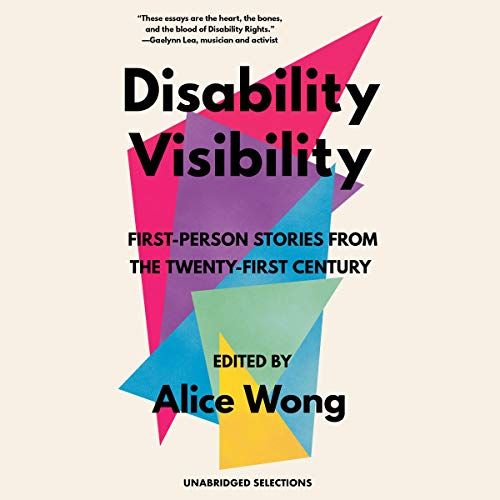‘Disability Visibility’ – WW book review
Living under capitalism and acknowledging you are disabled changes many aspects of your life. It both restricts and expands your immediate universe. It changes how you see the world around you. The restrictions are created and imposed by capitalism. The expansion comes from becoming part of a community.
“Disability Visibility: First-Person Stories from the Twenty-First Century,” edited by Alice Wong, was published this summer. Wong dedicated the book “To my younger self and all the disabled kids today who can’t imagine their futures.The world is ours, and this is for all of us.”
Though I am far from being a kid, this book opened my eyes and my universe.
The book’s epigraph is a comment by Neil Marcus, actor and playwright active in the development of disability culture: ”Disability is not a brave struggle or ‘courage in the face of adversity.’ Disability is an art. It’s an ingenious way to live.”
Wong’s collection of 37 stories is wide-ranging, encompassing a variety of disabilities. She is very clear the book “is not Disability 101 or a definitive ‘best of’ list.… These stories do not seek to explain the meaning of disability or to inspire or elicit sympathy. Rather, they show disabled people simply being in our own words, by our own accounts.”
In 2014, Wong partnered with StoryCorps, a national oral history organization, to create the Disability Visibility Project. Originally planned as a one-year project to commemorate the 25th anniversary of the 1990 Americans with Disabilities Act, the project grew. Now the DVP is over 140 oral histories describing what it means to live with a disability. Wong also has a Disability Visibility podcast, creating, sharing and amplifying disability media and culture.
The book is divided into four sections: Being, Becoming, Doing and Connecting. Each opens with a quote from a contributor in that section. My favorite quote comes from Sandy Ho in the Becoming section: “Taking up space as a disabled person is always revolutionary.”
The essays are a collection that describes the lives of people with disabilities. Some are written to be part of this collection, most are sourced from existing material, from eulogies to poetry, to a statement given before the U.S. Senate Committee on Health, Education, Labor and Pensions, to an open letter from the Harriet Tubman Collective.
The contributors are people who were born with disabilities and those who have become disabled, cultural workers, incarcerated workers, attorneys, doctors, authors, activists – barrier breakers representing different communities. Some address the specific issues facing people of color, and many identify as queer.
Wong closes her introduction: “Disabled people have always existed, whether the word disability is used or not… . Disability is not a monolith, nor is it a clear-cut binary of disabled and non-disabled. Disability is mutable and ever-evolving. Disability is both apparent and non-apparent. Disability is pain, struggle, abundance and joy. Disability is sociopolitical, cultural and biological. Being visible and claiming a disabled identity brings risks as much as it brings pride.
“Collectively, through our stories, our connections and our actions, disabled people will continue to confront and transform the status quo. It’s who we are.”
As Laura Hershey (1962-2010), a poet, journalist, feminist and disability rights activist, says in the book:
“Remember, you weren’t the one
Who made you ashamed,
But you are the one
Who can make you proud.”

This book is for everyone to read. We need more attention paid to making a world that accepts what each of us can give and provides what each of us needs.
Jean Bowdish is disabled and learning how large, proud and active the community of Deaf/Disabled people truly is. The language of disabilities and communities is ever evolving and changing. Deaf with a capital D represents the culture of the Deaf community. Some people use Deaf/Disabled and some use Disabled to represent everyone with any type of disability.

